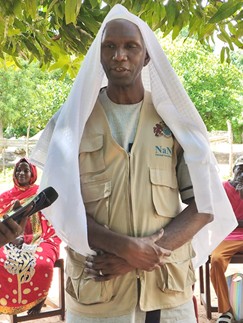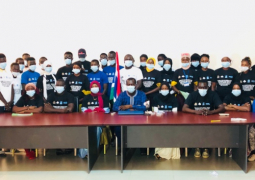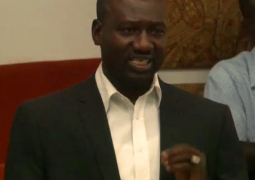
Speaking during a two-day toy-making workshop held in Arrengallen village, Foni District, Mr Fofana said the initiative revealed the creative potential of community members and underscored the importance of traditional craftsmanship in early childhood development.
“This exercise has helped us identify a significant number of talented individuals within our communities,” he said. “It has also played a key role in reviving and preserving our traditions, which are at risk of being lost.”
The initiative was organised by NaNA in collaboration with the Department of Community Development and the Directorate of Social Welfare, as part of the Positive Playful Parenting (PPP) Programme under the Gambia RISE Project. It targeted community facilitators and caregivers from PPP districts, aiming to strengthen the bond between children and caregivers while promoting cognitive development through play.
Mr Fofana explained that the toy-making exercise was designed to equip households with the knowledge, skills, and competence to create toys using locally available materials. “Our goal is to ensure that every household with a child has access to play materials that support learning, growth, and emotional development,” he said.
He further emphasised the importance of producing a variety of traditional toys to share with children at the household level, noting that such efforts foster physical, social, and emotional development. “We are trying to revive our tradition so that we do not lose it,” Mr Fofana added.
Following inspections of training centres across various regions, Mr Fofana expressed satisfaction with the creativity and diversity of toys produced by facilitators and parents. “Our hope is that all participants have acquired new skills and will share these with their families and communities,” he said.
He concluded by reiterating the programme’s broader vision: “Every household with a child should have a range of play materials to support their development. This initiative is not just about toys, it’s about nurturing potential, preserving culture, and building stronger communities.”
Read Other Articles In National News




